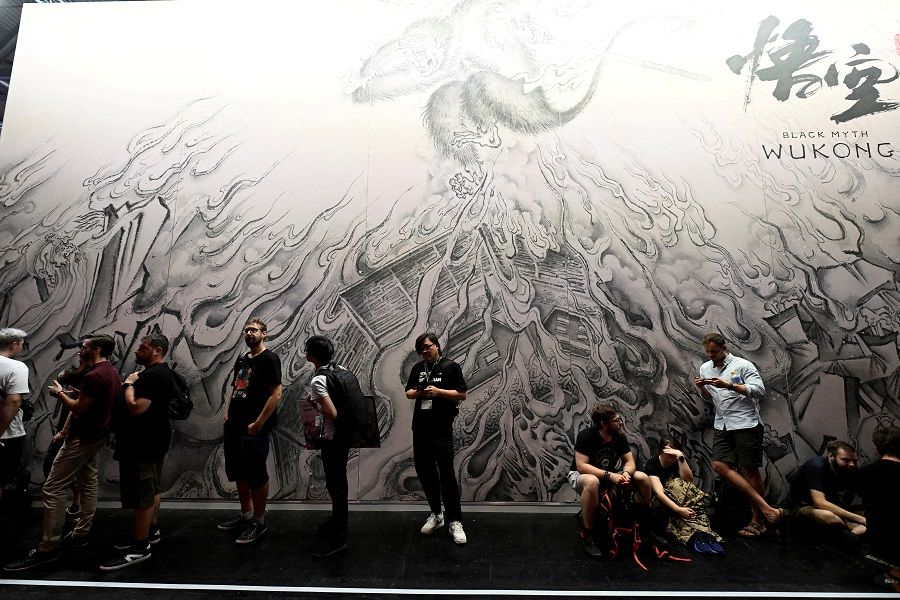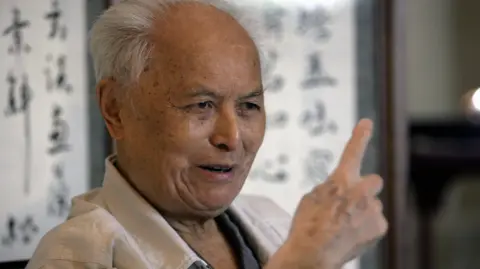Source: Think China (9/10/24)
How Black Myth: Wukong navigates China’s political and cultural trends
By Ying Zhu
Black Myth: Wukong has revived interest in everything Monkey King, but the Chinese video game has also been criticised for not fully capturing the original myth. Even so, the game has given the Chinese gaming industry a boost, even though government endorsement may shift the focus from design to politics. Academic Ying Zhu explores the magic of Monkey King.

People wait in line to play Black Myth: Wukong at Gamescom 2023, in Cologne, Germany, on 23 August 2023. (Jana Rodenbusch/ Reuters)
In summer 2015, a Chinese animation film, Monkey King: Hero Is Back, made headline news for breaking the Chinese animation box-office record previously held by DreamWorks’ Kungfu Panda 2 (2011). The film features the Monkey King, a legendary trickster known for his mischief and magical powers, drawn from the beloved 16th-century Chinese literary classic Journey to the West.
Journey to the West narrates the 7th-century pilgrimage of Chinese Buddhist monk Xuanzang, who travels from Xi’an (the Tang Dynasty capital) to India in search of Buddhist scriptures. This whimsical and fantastical tale chronicles Xuanzang’s challenging journey, accompanied by three troublesome apprentices who have been assigned to him as protectors to atone for their sins.
Among the three, the monkey named Sun Wukong stood out for both his magical power in fighting evil and his troublemaking penchant. His captivating character has enchanted generations of readers, making him a legendary hero in Chinese mythology.
Monkey King fever a decade ago
The Monkey King story has been updated through stage performances, TV series, film and video games in China and beyond. Research shows that from 1906-2021, roughly 170 theatre, film and TV adaptations were said to have been produced in the Chinese-speaking world alone. Among them, Monkey King: Hero Is Back stood out for its success in vanquishing Hollywood in the Chinese domestic market. Continue reading How Black Myth: Wukong navigates China’s political and cultural trends






